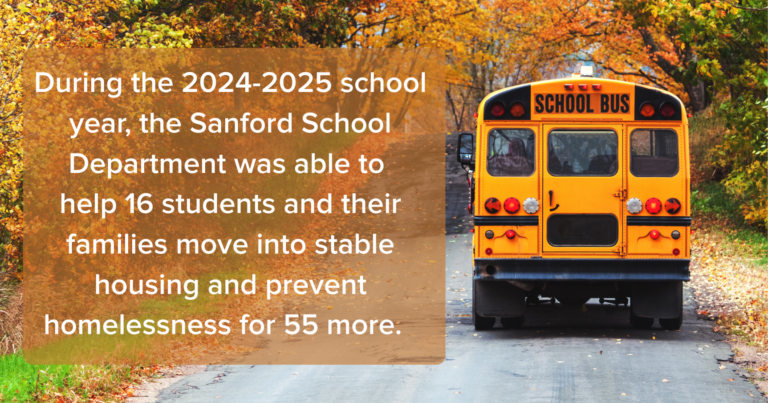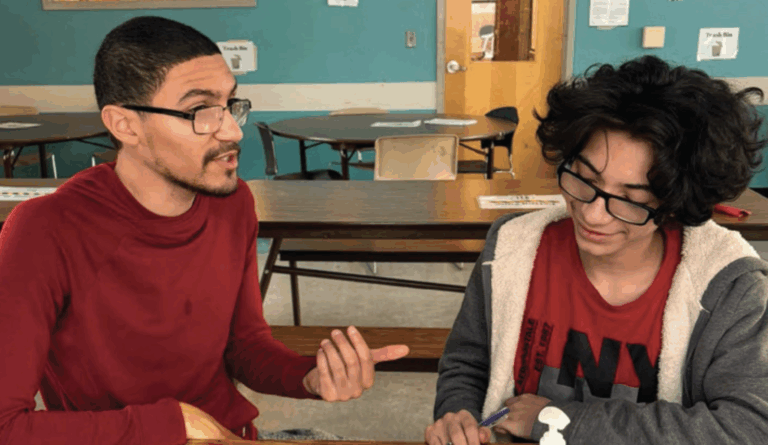Foundation partnerships are helping strengthen a key component of family well-being
The John T. Gorman Foundation believes that a key element to stemming generational poverty is helping families develop appreciable assets that will allow them to achieve meaningful financial mobility.
Two examples of this tenet in action include Foundation collaborations with Bangor Housing Authority and ProsperityME. Recently, executive directors from both of these nonprofits wrote op-eds (available here and here) to outline how their organizations are helping families develop appreciable assets and break the cycle of poverty — by helping families build savings at Bangor Housing Authority and by increasing the number of women- and immigrant-owned businesses at ProsperityME.
The importance of assets to family economic mobility was a key finding of a report co-authored by the John T. Gorman Foundation and Federal Reserve Bank of Boston, which was published in May. The report, titled “The Importance of Wealth to Family Well-Being: Seeding Innovation to Address the Structural Roots of Inequality,” details the systemic forces that have fostered wealth inequality and outlines strategic imperatives that would create more equitable opportunity for New England families.
Here’s how these Foundation-supported initiatives are doing just that.
Seeing savings pay off
In Bangor, the Foundation is supporting Bangor Housing Authority’s efforts to help its residents build savings through an enhancement of a federal program called Family Self-Sufficiency (FSS). Typically in public housing, rental rates rise right along with a resident’s income. Through FSS, as income rises, the money that would have gone toward a rent increase gets channeled into an escrow account, which can later be used to make a down payment on a home, pay down debt, or fund some other future opportunity. To access those savings, participants must be working full time and be free of cash assistance welfare for 12 consecutive months.
“Here at the Bangor Housing Authority, we have seen firsthand what a game-changer these appreciable assets can be for families,” wrote Executive Director Mike Myatt in the Bangor Daily News. “I’ve watched residents increase their earnings, move out of public housing, buy homes and reduce their reliance on public assistance at a pace that I haven’t seen before in my 25 years working in the field.”
With Foundation support, the housing authority has added other layers of support services for participants and their children, through an initiative called Moving Families Forward. This initiative includes coaching sessions for parents, access to kids’ programs run by Boys & Girls Club of Bangor, a 14-week social and emotional skill development course for families, plus access to services from more than a dozen partner agencies, for everything from childcare to mental health counseling.
As Myatt attests in his op-ed, the results of the enhanced FSS program, paired with Moving Families Forward, have been remarkable. Of the 261 households that have enrolled in the enhanced program, the average family income rose more than 300 percent, from $750 per month to $3,050 per month during their five years in the program. More than 61 percent of the families reduced the amount of public assistance they needed or eliminated it altogether. Two dozen participants have gone on to buy their own homes.
Fostering business ownership
The wealth and assets report also highlighted the need to create pathways to business ownership by improving access to seed capital to start businesses and technical assistance to grow and expand. ProsperityME, which provides financial literacy and job training services to New Mainers, is doing just that with the help of funding from the John T. Gorman Foundation.
“Over the past decade at ProsperityME, we have seen firsthand how truly empowering entrepreneurship can be for New Mainers,” wrote Executive Director Claude Rwaganje in the Portland Press Herald, “and how essential it is to provide exactly the kind of support that this report calls for.”
ProsperityME serves clients from more than 20 countries, mostly in central and southern Africa.
Nearly 93% of their students meet the definition of “extremely low income” set by the Department of Housing and Urban Development. Immigrant women of color face particularly high barriers to economic success. According to the American Immigration Council, 48% of immigrant women do not have work authorization and do not qualify for government-sponsored benefit programs. Of those legally allowed to work, 42% have minimum-wage jobs that pay between $11 and $13 per hour. Those jobs barely cover the daily expenses and leave little room to invest in training to get higher-earning jobs, or build better futures.
Rwaganje goes on to say that entrepreneurship breaks down many of those barriers. It allows for the scheduling flexibility many of them need for childcare. And it gives them the power to create jobs for other members of the family and the community. That’s why ProsperityME is working to increase the number of women- and immigrant-owned businesses.
In 2020, ProsperityME partnered with the Portland-based nonprofit In Her Presence to launch a program called Charting Your Course, which helps immigrant women define pathways to economic and professional success. For some women, it means obtaining training or academic study to advance in a profession or change careers. For others, it means accessing the resources they need to start their own businesses.
With the help of grant funding from the John T. Gorman Foundation, ProsperityME is now launching the Women’s Small Business Empowerment Project, to provide more support for Charting Your Course graduates who want to start their own businesses. The initiative provides a year of business mentorship and technical assistance with services such as bookkeeping, marketing, advertising, and web design, plus seed funding. The organization hopes to build a framework that can be replicated in other underserved populations.
The Foundation is proud to support these initiatives and work with our partners to have a lasting impact on the wealth divide.




